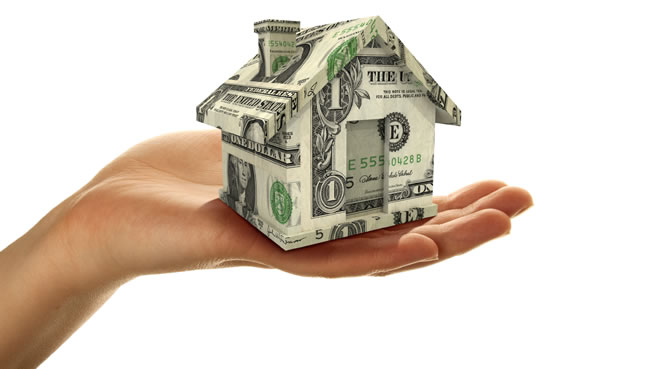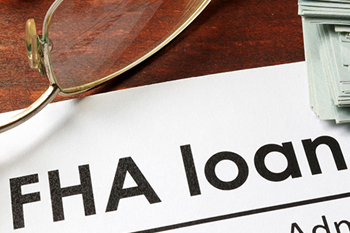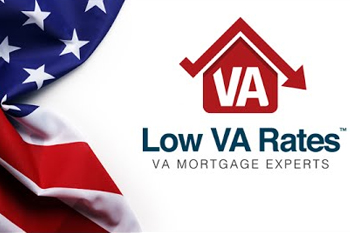
IF YOU’RE LOOKING TO BUY A HOME, LEARN ABOUT THE HOUSING MARKET AND KNOW YOUR FINANCIAL SITUATION
Are you a home buyer eager to get into the market? Here are the steps to decide whether you’re ready to take the plunge.
- Check selling prices of comparable homes in your area. Do a quick search of the multiple listing service listings in your area on a number of websites.
- Use a mortgage calculator to get an idea of what your monthly mortgage payments would be if you bought today. Bankrate Mortgage Calculator Click Here
- Find out what your total monthly housing costs would be, including taxes and homeowners insurance. To get an idea of what you’ll pay in insurance, pick a property in the area where you want to live and make a call to an insurance agent for an estimate. For an idea of what you’ll pay in taxes, check your property appraiser’s website.
- Find out how much you’ll likely pay in closing costs. Closing costs include origination fees charged by the lender, title and settlement fees, taxes and prepaid items like homeowners insurance or homeowners’ association fees.
- Look at your budget and determine how a house fits into it. Fannie Mae recommends that buyers spend no more than 28 percent of their income on housing costs.
- Talk to reputable Realtors in your area about the real estate climate.
- Remember to look at the big picture. While buying a house is a great way to build wealth, maintaining your investment can be labor-intensive and expensive. Unexpected costs for new appliances, roof repairs and plumbing problems can quickly drain your bank account. So consider whether you’re ready for the expense and effort of home ownership before pulling the trigger.
PREPARE TO HUNT

Taking a few steps at the beginning of the home buying process can save you time, money and aggravation.
- Examine your credit. Blemished credit or the inability to make substantial down payment can put the brakes on your homeownership plans. That’s why it pays to look at your creditworthiness early in the home buying process. It’s a good idea to get your FICO score, which will cost you a small fee.
- Get your docs in a row. Collect pay stubs, bank account statements, W-2s, tax returns for the last two years, statements from current loans and credit lines, and names and addresses of your landlords for the past two years.
- Find lenders and get preapproved. Your bank or local credit union are good places to start your search. Applying to multiple lenders in the same month helps increase your chances of getting a loan at the best rate possible without damaging your credit score too much.
- If at first you don’t succeed, try the government. If you can’t find a bank willing to lend to you consider getting a FHA loan. The Federal Housing Administration has a program that insures the mortgages of many first-time homebuyers. As a result of this guarantee, lenders will be more inclined to lend to you. As a bonus, the FHA requires only a 3.5 percent down payment from first-time homebuyers.
New Home within reach: 4 key down payment tips
Here are four ways to come up with the cash for your new home:
- Pay off your credit cards.Paying off credit card balances can help you avoid interest charges and accrue more cash for your down payment.
- Tap your IRA. If you’re looking to buy your first home, let the IRS help. Tax laws allow you to use up to $10,000 in IRA funds as a down payment if you’ve never owned a house. If you’re married and you both are first-time buyers, you each can pull from your retirement accounts, meaning a potential $20,000 down payment.
- Get a gift. Ask a family member to make a present of your down payment. Tax law allows gifts of several thousand dollars a year to be bestowed without tax consequences to the giver or recipient. The monetary present can be from anyone, so a well off friend isn’t off limits.
- Look for lost money. Do you have any money stashed anywhere? You could have money languishing in an old bank account somewhere. You can also check with the National Association of Unclaimed Property Administrators to see if you have any missing money.
Which Mortgage is for you?
Know these three loan types before you go mortgage shopping.
 Conventional
Conventional
Who they’re for: Conventional mortgages are ideal for borrowers with good or excellent credit.
How they work: Conventional mortgages are basically home loans. They follow fairly conservative quidelines for:
- -Borrower Credit Scores.
- -Minimum Down Payments.
- -Debt-to-income ratios.
Debt to income ratio is the percentage of monthly income that is spent on debt payments, including mortgages, student loans, auto loans, minimum credit card payments and child support.
Cost: Closing costs, down payments, mortgage insurance and points can mean the borrower has to show up at closing with a sizable sum of money out of pocket.
What’s good: Conventional mortgages generally pose fewer hurdles than Federal Housing Administration or Veterans Affairs mortgages, which may take longer to process.
What’s not good as good: You’ll need excellent credit to qualify for the best interest rates.
 FHA loans
FHA loans
Who they’re for: Federal Housing Administration mortgages have flexible lending standards to benefit:
- -People whose house payments will be a big chunk of take-home pay.
- -Borrowers with low credit scores.
- -Homebuyers with small down payments, and refinancers with little equity.
How they work: The Federal Housing Administration does not lend money. It insures mortgages.
The FHA allows borrowers to spend up to 56 or 57 percent of their income on monthly debt obligations, such as mortgage, credit cards, student loans and car loans. In contrast, conventional mortgage guidlines tend to cap debt-to-income ratios at around 45 percent, and sometimes less.
For many FHA borrowers, the minimum down payment is 3.5 percent. Borrowers can qualify for FHA loans with credit scores of 580 and lower.
Cost: Each FHA loan has 2 mortgage insurance premiums:
- -An upfront premium of 1.75 percent of the loan amount, paid at closing.
- -An annual premium that varies from a low of 0.45 percent to a high of 0.85 percent.
This premium is rolled into the monthly mortgage payment for the life of the loan. See how the premiums vary by loan term and amount of equity.
What’s good: FHA loans are often the only option for borrowers with high debt-to-income ratios and low credit scores.
What’s not as good: FHA mortgage insurance premiums usually are higher than premiums for private mortgage insurance. To get rid of FHA premiums, you must refinance the loan.
 VA loans
VA loans
Who they’re for: Most active-duty military and veterans qualify for Veterans Affairs mortgages, as do many reservists and National Guard members. Spouses of military members who died while on active duty or as a result of a service-connected disability may also apply.
How they work: No down payment is required from qualified borrowers buying primary residences. The VA does not lend money but guarantee loans made by private lenders.
Cost: The VA charges an upfront VA funding fee, which can be rolled into the loan or paid by the seller. The funding fee varies from 1.25 percent to 3.3 percent of the loan amount.
The VA allows sellers to pay closing costs but doesn’t require them to. So the buyer might need money for closing costs. Borrowers may also need cash for the earnest-money deposit.
What’s good: VA borrowers can qualify for 100 percent financing. Veterans do not have to be first-time buyers and may reuse their benefit.
What’s not as good: There are limits on loan amounts. The limits vary by country.
What to know About the loan process
Applying for a mortgage takes a lot of paperwork. Lenders will want to verify every facet of your financial life: income, debts, assets and more. Many lenders request documentation for the home purchase you intend to make, including a copy of your earnest money deposit and a purchase contract signed by you and the seller.
Your Paper Pile
Here is a checklist for other paperwork lenders will require.
- -W-2 forms from the previous two years, if you collect a paycheck.
- -Profit and loss statements or 1099 forms if you own a business
- -Recent paycheck stubs
- -Most recent federal tax return, and possibly the last two tax returns
- -A complete list of your debts, such as credit cards, student loans, car loans and child support payments along with minimum monthly payments and balances
- -A list of assets, including bank statements, mutual fund statements, real estate and automobile titles, brokerage statements and records of other investments or assets.
- -Canceled checks for your rent or mortgage payments
A few tips on documentation
You may need proof that a gift isn’t a loan. If you receive a cash gift or grant toward your down payment, you’ll have to provide a letter from the giver that declares that the gift isn’t a loan that needs to be paid back. The lender might even want a canceled check and the giver’s bank statement.
When asked for documents, provide them promptly. Never cross out, white out or alter any information on a document. If you white out anything it’s not a valid document.
Always provide every page of every document-even the pages that say “This page is blank.”
Finally, always remain ready to supply updated documents. Documents expire after 60 days.
11 KEY QUESTIONS TO EXPECT FROM YOUR MORTGAGE LENDER
Employment and income
-
- How much do you make?
- How long have you been at your job
- How is your income derived-is it from a steady salary or irregular income?
Debt
-
- What recurring debts do you have
- How much do you pay a month for auto loans and credit cards?
Savings and assets
-
- How much do you have saved in stocks, bonds, mutual funds and other assets?
Down payment
-
- What is the size of the down payment?
- Where does the down payment money come from? Is it all from your savings, or did some of it come as a gift from family?
Loan purpose
-
- If it’s a refinance, do you want to take cash out at closing? If so, how much?
Property use and type
- Do you plan to live in the house year round, or is it investment or vacation property?
- Is it a house, duplex, condominium or co-op?
MEMORIZE THESE 5 STEPS TO FINANCING
Step 1: Qualification
Qualification (or prequalification) is an opinion that your income, assets and debts qualify you for a loan of some specified amount. The opinion may come from a lender or a real estate agent.
Step 2: Preapproval
Preapproval is a conditional commitment by a lender to make a loan prior to the identification of a specified property. On a preapproval, unlike a qualification, the lender verifies the information you provide and checks your credit. A preapproval will stipulate a loan amount or monthly payment but not necessarily the loan type or price.
Step 3: Lender approval
Approval is a commitment by a lender to make a loan. Unlike a preapproval a specific property is identified and the loan details are spelled out. Details include the type and purpose of the loan, down payment and type of documentation.
Step 4: Lock
A lock is a commitment by the lender to a specified price: rate and points.
Step 5: Appraisal
An appraisal is an opinion regarding how much a property is worth, based mainly on recent transactions of similar properties in the same market area.


 Conventional
Conventional FHA loans
FHA loans VA loans
VA loans





